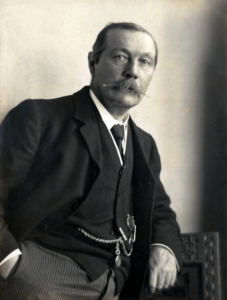I edit manuscripts, some for writers you’d know and others who haven’t been published yet. No matter how well they write – and many write very well indeed – the same mistakes often appear in their manuscripts. In mine, too, for that matter.
Here are some of the mistakes many writers make:
Not checking your corrections.
Aha! You spotted the mistake in this sentence:
I her saw leave the store.
So you correct it to:
I her saw her leave the store.
And don’t remove that extra pronoun. Arggh! Don’t forget to check the corrections to make sure they’re correct.
 Clang clunkers.
Clang clunkers.
These words sound similar to the word you really want. Here’s a recent example I encountered:
My friend, who was no athlete, clamored up the side of the steep hill.
Really? He shouted his way to the top? More likely this is what happened:
My friend, who was no athlete, clambered up the side of the steep hill. That means he climbed awkwardly to the top.
 Lost in space.
Lost in space.
Let’s say you’re Arthur Conan Doyle, writing about the immortal Sherlock Holmes and his assistant, Dr. John Watson. Somewhere in your latest manuscript, you’re going to slip and call Sherlock Watson, or vice-versa. I find at least one misplaced name in every manuscript, no matter how careful the writer.
Conan Doyle is the patron saint of authorial absentmindedness. Was Watson wounded in the shoulder or the leg? Did he have only one wife or maybe as many as six? Sherlockians love to debate these points.
 Dropped pronouns.
Dropped pronouns.
Most pronouns – he, she, it, I, you, him, her – aren’t very heavy. Even the biggest – they and them – are a slender four letters. But they get dropped again and again. So does “a,” a harmless indefinite article.
Here are a couple of examples:
He worked long hours for family.
She’s smart woman.
The pronoun “his” is missing in the first sentence and “a” is missing in the second. The best way to locate those tricky dropped pronouns and articles is to read the sentences out loud.
Good luck, writers. There are more examples, in your manuscript and mine. But those don’t show up until after publication.


What I’m seeing more and more is the left, single smart quotation mark – ‘ used in place of the apostrophe – ’ . I’m even seeing it in copy that one would think was professionally edited and in headlines.
When a word processor autocorrects to smart quotes, it doesn’t know the apostrophe is needed (Eg: ‘Tis a well known problem.) It’s up to the author to get it right. Word processors should have a way to correct this automatically, but I haven’t found it yet.
(Hopefully the HTML code will translate when when I post this. If not, you get the idea.)
You are absolutely right, Eric. With this typeface, I couldn’t illustrate it, but errant apostrophes are a real problem. Take dates — the class of ’89 — the apostrophe needs to point out. Too often, it points in. Same with shortened forms of words — Go get ’em. With curly quotes, the quote mark needs to point out.
I’ve been seeing too many “wrong words” lately.
He reigned in his anger.
She peaked around the corner.
He peddled his bike to the store.
Spellcheck won’t catch these.
And yes, Eric, I have learned to search for those opening single quotes that should be apostrophes.
Lots of those wrong words, Terry. I read books by MAJOR authors that had “grizzly murders.” (The bear was innocent.) And clothes tossed down a “laundry shoot,” which is pretty hard on your shirts.
Those little devils slip in when you’re tired.
Thanks, Elaine, for a timely post. I’m line editing my MS before sending it off to my editor for the second round.
A personal story. My last book was published with a missing end-of-sentence, end-of-paragraph, end-of-first-chapter period! You think that didn’t reach out and throat punch me when I saw it? 🙁
My sympathies, Deb. That punched in the gut, air sucked out of the room feeling when you see an error like that in your new book can ruin your day. And your week.
Good luck with the manuscript.
Also, beware of the evil that is a universal find and replace. In a piece of nonfiction I was reading about ghost hunting, the writer or editor must have realized that they should capitalize “The Light,” as in the brightness that brings us to God. Through the whole book every time someone entered a dark room, they turned on The Light. Really, really funny.
The editor of a mystery I read, this was a major NY publisher no less, decided that the heroine who lives in Atlanta should be a Duke graduate instead a Mercer graduate. So, universal find and replace. But several times in the novel, the heroine drove to her university to talk to a former professor. No, a trip from Atlanta, GA, to Durham, NC, isn’t less than an hour.
Yes, on search-and-replace. I had a Lt. named Whitehead, and decided to change his name to Waterman. Did a search-and-replace all.
A beta reader wondered why the character was squeezing a Waterman on her face.
S-and-R an also create humorous results when the word you’re replacing also occurs as part of another word. But since I can’t remember the case that actually happened to me, I leave it as an exercise for the reader to think how it might happen.
LOL — and I mean this one really did make me laugh out loud.
You have to remember to check the “whole words only” box to avoid those words within word replacements.
There’s also the “match case” option which can make a huge difference.
You’ve spotted another one, Marilynn. Loved your cautionary tales.
Yep. I’ve made these mistakes, one of many reasons why a critique group is so important–but even they will overlook absent pronouns, articles, etc. Our brains automatically supply the missing words…until it gets into print, much to our eternal dismay.
Another pair of fresh eyes can make a big difference, Rick. They have a better chance of spotting those missing words.
I don’t think we can avoid some of these mistakes, but I’ve found reading from the bottom up helps with a few things.
Another one is believing that your grammar is correct the way it is. Commas where periods should be; ellipses and dashes which make it sound like Captain Kirk wrote it; punctuation in dialogue which is (for lack of a better word) unique; and, of course, capital letters where there shouldn’t be capital letters.
I’ve had the displeasure of reading novels which have a great story, but so physically painful to read. Pulls me right out of the story when… I have to… Figure out what the… Author– MIGHT BE sayin– ya no?
But, I’m guilty of forgetting words, doubling up on a word, transposing letters (nimd for mind) or having words run together (usto, for “used to”, or thank, for “the bank”).
I’m with you, Mollie. Poor editing drives me nuts when I’m trying to read a book — I keep mentally correcting the mistakes, which takes me out of the story.
Word’s ability to read aloud and ProWriter’s 22 reports has helped me tremendously but I often fall victim to not going through the same editing process with my corrections and ending up like your example with extra words, words that don’t belong etc. And another set of eyes is essential.
And, we volunteer to work this hard? Sheesh! We must need therapy. 😉
That first sentence should be “have” not has. Sigh. I need an editor for my comments!
But you corrected it — the right way.
We’re all a bit twisted to stay in this profession, Cecilia, but it’s way more fun than a real job!
One short story anthology, full of stories we loved, was also filled with so many errors that I started having students make corrections in their copies as we read. At a teachers’ conference, I asked the publisher’s rep. about it . . . early years of computers doing the layout, and someone sent the wrong saved version to the printer. They had tried to call back most of the copies, but ours hadn’t answered the call.
Malapropisms and homonyms are beyond Spellcheck’s grasp. Better just keep a sense of humor. I love your final “don’t show up until after publication.” Yep. I once misspelled rapport on a recommendation letter, which I friend noticed on my draft copy after I mailed it.
Ouch, Mary! Your experience is way too common. Welcome to the uncertain world of publishing.